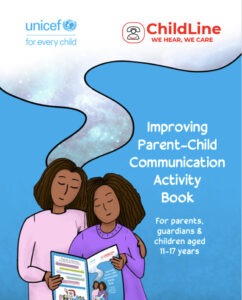What is emotional intelligence?
Emotional intelligence usually involves four abilities: a person’s self-awareness, their ability to self-manage, their social awareness, and their ability to manage relationships effectively. It is about having a deep understanding of one’s own emotions in order to manage them and express them effectively. It is also about recognizing, understanding, and sometimes empathizing with the emotions of others.
An emotionally intelligent child can perceive how their actions might make someone feel, they can show sympathy towards those feelings, grasp social cues, listen actively, and understand or accept the perspectives of other people.
Some common abilities or signs of an emotionally intelligent child:
- They can understand and regulate changes in their own emotions.
- They can more clearly articulate their feelings and thoughts.
- They are less likely to be impulsive.
- They are willing to express gratitude.
- They are more likely to stand their ground and say “no” when others make them uncomfortable.
Is it really necessary?
A child who develops emotional intelligence is more likely to be a well-adjusted, socially competent, and mentally healthy adult in the future. Teaching children the skills to be able to handle big and complex emotions, whether in the workplace, at school, with friends, or with strangers, is a massive step towards preparing your child for the real world. In the real world, people may make them angry and setbacks may make them cry or want to give up. An emotionally intelligent person can recognize these emotions, understand their source, and experience them in their entirety before working through them.
Emotional vs Traditional Intelligence
Traditional intelligence is often seen as a measure of how “smart” a person is. This usually refers to their ability to process information and apply it to different problems or situations. Realistically, this is often just based on how well someone does on traditional tests designed to measure a very narrow expression of intelligence. For example, a child who gets an A+ in a Math test might be considered smart, regardless of any use of the information they learn in an unrelated situation. Emotional intelligence is very different and fundamentally human in nature as it requires the use of human emotion to think or enhance our reasoning.
How can you teach your child to be emotionally intelligent?
As a parent/guardian, your child’s greatest example and source for learning new behaviour is you. Seemingly insignificant day-to-day actions or interactions between you and your child, or between you and others in the sight of your child, can teach them valuable skills that they will take into adulthood. Here are some ways you can foster emotional intelligence in your child:
- Never diminish or disregard their feelings by saying things like “There’s nothing to cry about!” or, “You’re being too sensitive”, even when they frustrate you.
- Help your child to label or describe what they feel. Try gently asking questions like “Are you hurt because you lost the competition?”
- Help them find a solution to their problem. After talking about how they feel, help them to find realistic ways to improve their situation (e.g. academics or sports performance)
- Help them develop healthy coping skills like drawing, crafts, or exercise, especially in the case of things they cannot control.
- Model the healthy expression of emotions, good and bad, as well as the ability to process, understand and regulate those emotions to prevent them from disrupting their life.
Emotions are hard. As a child, for whom emotions can be big and overwhelming, they can be even more difficult to handle. With the right support system, however, children can learn that it’s okay to feel these big emotions and that there’s always a way to get through them.
[/et_pb_text][/et_pb_column][/et_pb_row][/et_pb_section]







